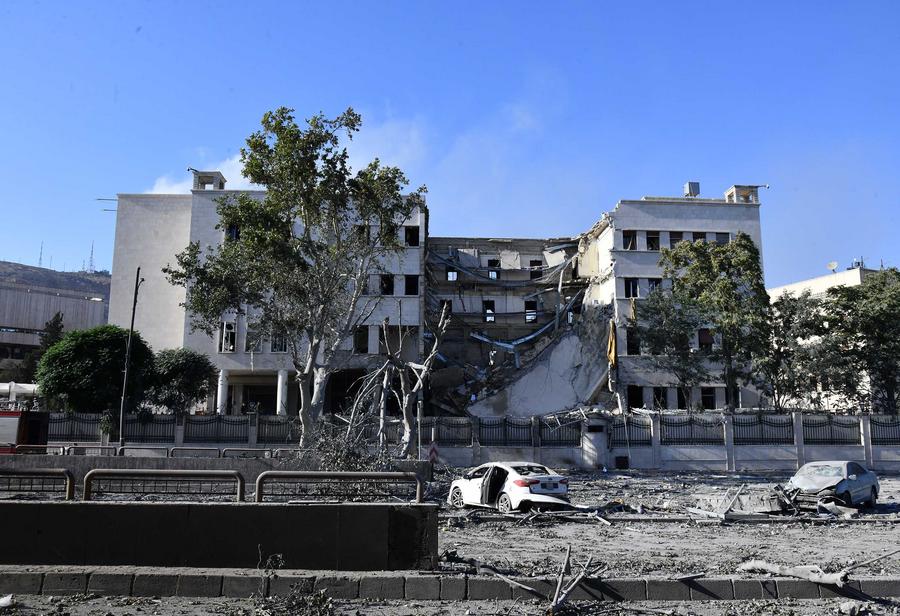
DAMASCUS/JERUSALEM/CAIRO - Syrian interim leader Ahmad al-Sharaa on Thursday strongly condemned Israeli airstrikes on Damascus, reaffirming the government's commitment to protecting all Syrians, especially the Druze community.
"Our people waged a revolution for freedom and emerged victorious through great sacrifice. They remain ready to fight for their honor whenever threatened," al-Sharaa said in a nationally televised address.
Turning to Israel, al-Sharaa accused the "Israeli entity" of consistently targeting Syrian stability and seeking to incite internal conflict since the fall of the former Syrian government. He charged that Israel aims to turn Syria into a permanent battlefield, weaken its national cohesion, and obstruct its reconstruction process.
"Syria is not a testing ground for foreign conspiracies, and we won't allow external ambitions to be realized at the expense of our children and our future," he added.
Specifically addressing Syria's Druze community, al-Sharaa reaffirmed its place as an integral part of the nation.
"Protecting your rights and freedoms is a top priority," he said. "We reject any effort to drag you into foreign agendas or sow internal division."
On Wednesday, Israeli warplanes intensified their air campaign across southern Syria, striking the Syrian Army General Command headquarters and the presidential palace area in Damascus.
The Syrian health authorities said one civilian was killed, and 18 others injured in the strikes on the capital, which included at least five separate air raids targeting central Damascus. Footage aired on local TV showed smoke billowing from Umayyad Square, where the army's main command building is located.
The UK-based Syrian Observatory for Human Rights said parts of the headquarters and the defense authorities were destroyed, and additional strikes hit buildings in the upscale al-Malki neighborhood and near the Tishreen Palace. The fate of senior officials inside the facilities remained unknown.
An Israeli military spokesperson confirmed the operation, saying that "the military headquarters in Damascus is the location from which Syrian regime commanders direct combat operations and deploy regime forces to the Sweida area."
In a statement, the spokesperson added that also "a military target in the area of the Syrian regime's presidential palace in Damascus was struck."
ALSO READ: Israeli airstrikes escalate against Syrian forces in Sweida amid volatile situation
In southern Syria, Israeli strikes also targeted government forces' convoys and positions in Sweida province, killing at least three senior officers in the village of al-Majimer, according to the observatory. Earlier raids in the region had killed at least seven others, bringing the total toll among government forces to 10.
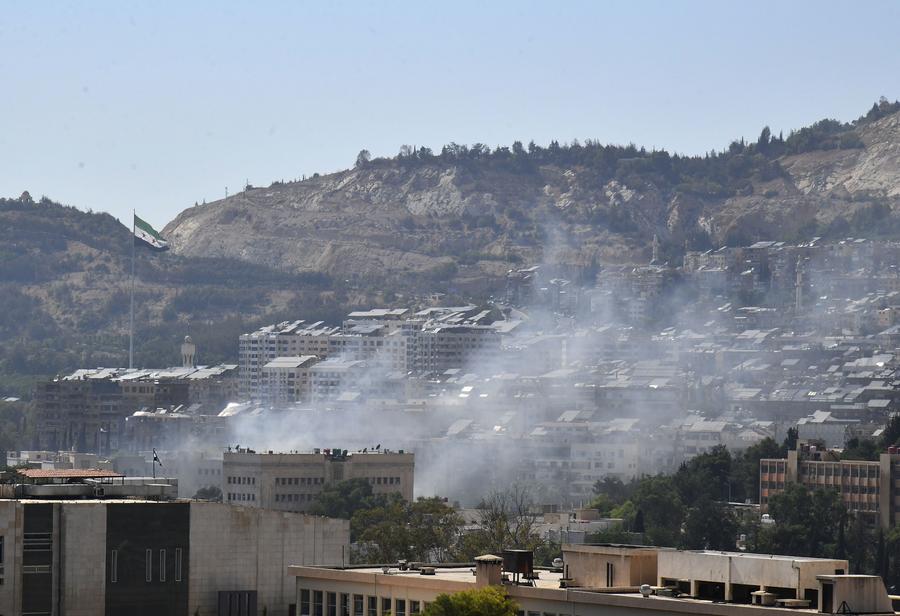
Additional air raids late Wednesday struck multiple locations in and around Daraa city, including the governor's palace, the military intelligence branch, and the civil registry office, the observatory said. Further strikes hit the 189th regiment in Jabab and the 132nd brigade west of Daraa, prompting ambulances to rush to the scene.
In the Damascus countryside, Israeli jets also bombed the town of al-Kiswah, though no casualties were immediately reported.
The strikes came after the collapse of a ceasefire between Syrian government forces and armed Druze groups in Sweida, the heartland of the Druze community in Syria. The war monitor said at least 248 people have been killed in the area since Sunday.
The Druze are a religious and ethnic minority originating from Islam, living primarily in Syria, Lebanon, and Israel, with smaller communities in Jordan and elsewhere.
Israel carried out several waves of strikes in Damascus and Sweida, with the stated aim of preventing the Druze minority from being harmed.
The escalation in Sweida began on Sunday after armed members of a Bedouin tribe in the countryside of Sweida reportedly assaulted and robbed a young Druze man near the town of al-Masmiyah, along the Damascus-Sweida highway. The brutal attack sparked retaliatory kidnappings, spiraling into full-scale clashes between local Druze fighters, government troops, and Bedouin militias.
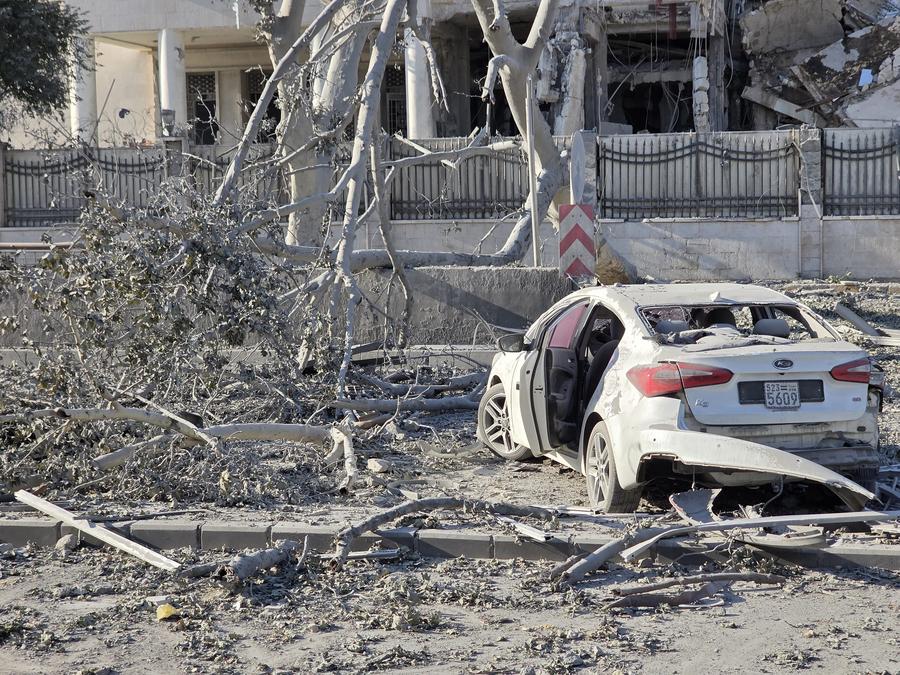
Israeli strikes condemned
Syria condemned the Israeli airstrikes in Damascus, calling them a "blatant violation" of national sovereignty and international law.
In a statement released by the foreign affairs authorities, Syria said the strikes targeted "civilian infrastructure and government institutions" in Damascus and surrounding areas, leaving several civilians, including women and children, injured and causing extensive material damage.
The statement said the attacks reflect Israel's "systematic policy of escalation" and its ongoing efforts to destabilize Syria and the wider region, describing them as a clear breach of the United Nations Charter and international humanitarian law.
"Syria holds Israel fully responsible for this dangerous escalation," the statement read, adding that Syria will exercise its legitimate right to self-defense by all means permitted under international law.
The statement also called on the United Nations and the international community, including the Security Council, to condemn the repeated Israeli strikes on Syrian territory and to take "urgent and decisive measures" to curb what it called Israel's repeated violations.
Meanwhile, the Arab League denounced Israeli attacks on Syria as "blatant assault" on the sovereignty of an Arab state that is a member of both the Arab League and the United Nations.
It also accused Israel of seeking to sow chaos in Syria by exploiting recent events in Sweida province.
Egypt, in a statement from its Foreign Ministry, said these repeated Israeli violations only serve to deepen tensions and represent a fundamental source of instability in Lebanon, Syria, and the broader region.
ALSO READ: Death toll from Syria's Sweida clashes nears 100, Israel intervenes
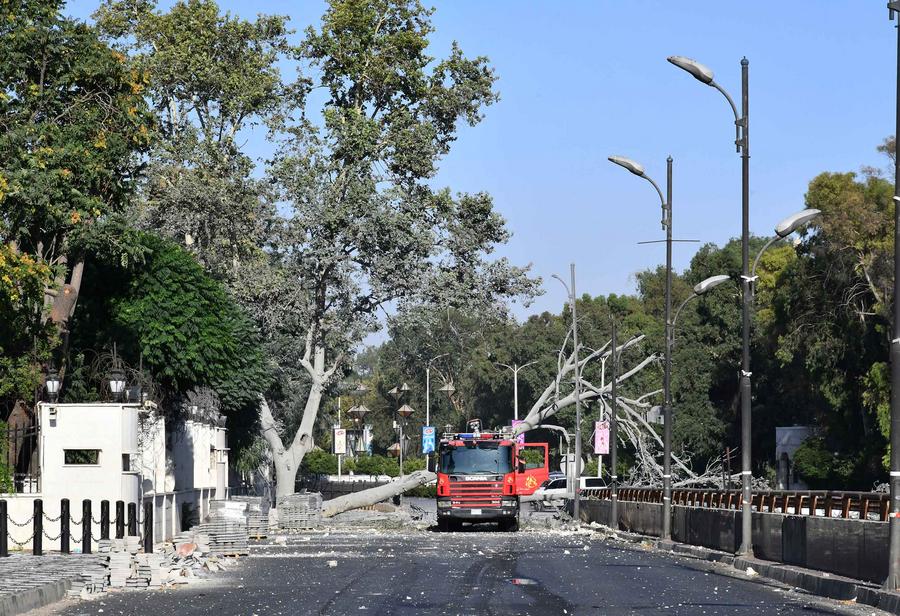
Algeria denounced the assault as a "flagrant violation of Syria's sovereignty and unity," and expressed full solidarity with Syria's right to defend its stability in line with the UN Charter and international law.
The Iraqi Foreign Ministry affirmed its absolute rejection of endangering the lives of Syrian civilians and exacerbating their humanitarian suffering.
Lebanese President Joseph Aoun affirmed his country's "full solidarity" with Syria and its people.
He renewed his call on the international community to pressure Israel to stop the repeated aggressions and to respect the sovereignty and territorial integrity of the state.
Iranian Foreign Minister Seyed Abbas Araghchi also condemned the attacks, saying on his X post, "Unfortunately, this was all too predictable. Which capital is next?"
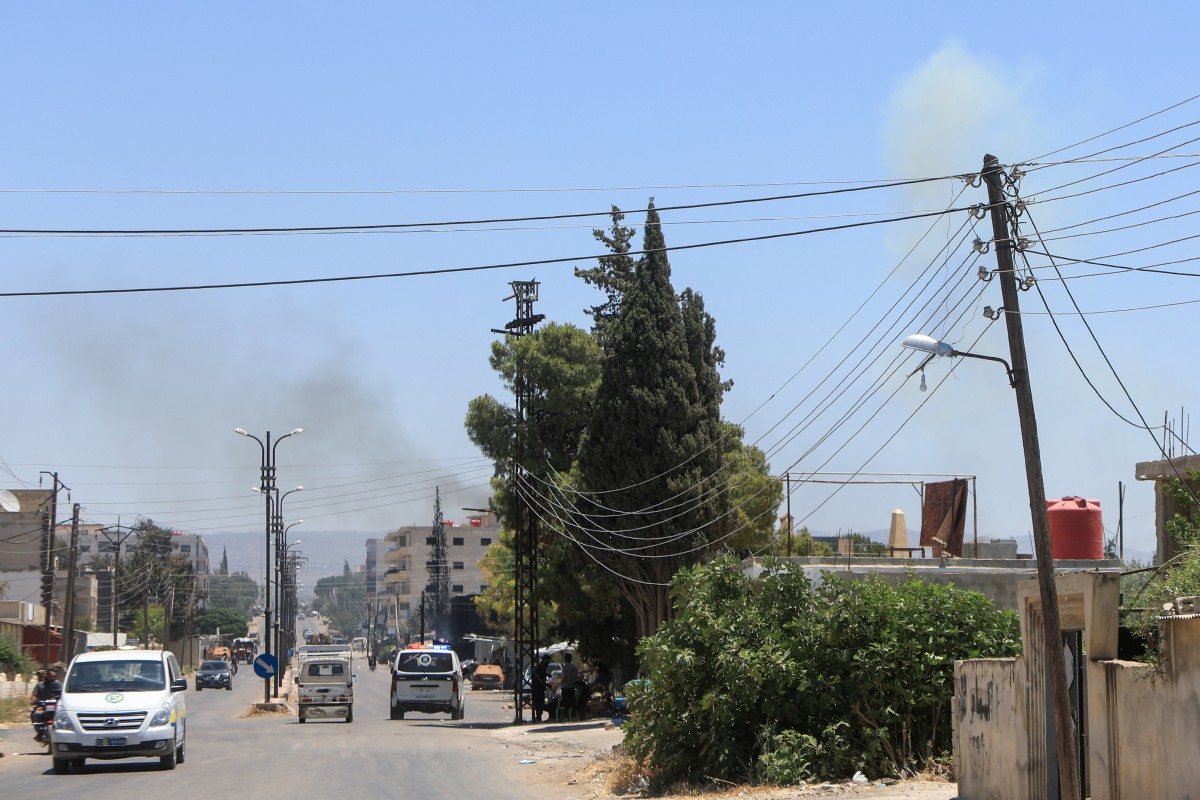
New ceasefire takes effect
A fragile ceasefire entered into effect Wednesday night in Sweida, as Syrian interim government troops began withdrawing from the city following days of deadly clashes between government forces, Druze fighters, and Bedouin tribes, according to the state-run media outlets.
The ceasefire was reached between Syria's interim government and Druze spiritual leaders after four days of intense fighting that killed at least 248 people, according to th Syrian Observatory for Human Rights.
A statement from Syria's interior authorities said the agreement includes a complete cessation of hostilities, the return of army units to their barracks, and the full reintegration of Sweida into state control.
The agreement will see internal security checkpoints staffed by local police established across the Sweida city, while a joint monitoring committee of interim government officials and Druze clerics will be formed to oversee implementation of the deal. The agreement also outlines steps to regulate heavy weapons in cooperation with the defense and interior authorities, and to restore government institutions under Syrian law.
Sheikh Youssef Jarbouh, the top spiritual leader of Syria's Druze community, confirmed the terms and urged all sides to honor the accord. However, in a sign of continued division, influential Druze cleric Sheikh Hikmat al-Hijri issued a separate statement rejecting any agreement with the transitional government, vowing to continue what he called "legitimate resistance" until Sweida is fully "cleansed" of armed government forces.
Human rights abuses in Sweida
Also on Wednesday, the Syrian interim authorities strongly condemned recent human rights violations reportedly committed in Sweida, pledging to hold those responsible accountable.
In a statement, the interim government expressed "deep concern" over "distressing violations" reported in some areas of Sweida in recent days, describing such acts as "criminal and unlawful."
The statement followed a report from the Syrian Observatory for Human Rights, which accused defense and interior forces of committing serious abuses during recent clashes that have been raging since Sunday in Sweida.
READ MORE: Death toll rises to 18 in armed clashes in Syria's Sweida
Syria's interim government said it is "fully committed" to investigating all such incidents and will ensure that those responsible are held to account under national law.
The statement also reaffirmed the government's "respect for the Druze community", calling its members "an integral part of Syria's national identity who have long exemplified patriotism, courage, and sacrifice".


